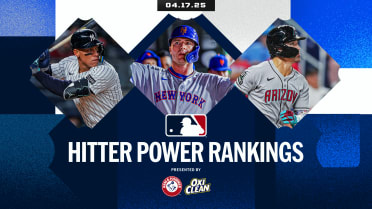This story was excerpted from Adam McCalvy's’s Brewers Beat newsletter. To read the full newsletter, click here. And subscribe to get it regularly in your inbox.
Here’s the thing about Craig Counsell: When he says something like he said Sunday, after Josh Hader became the third closer in Brewers history to reach 100 saves, you know that Counsell has considered it for a good, long while.
"He's four-and-a-half full seasons in,” Counsell said. “No reliever has had a better start to his career than Josh Hader in the history of the game. I'm not exaggerating. That's a fact. I don't think it's really disputable."
A couple of others who cover the Brewers dove into that question earlier this week, notably Will Sammon of The Athletic and Curt Hogg of the Milwaukee Journal Sentinel. Hat tip to them for digging into the numbers.
Here’s my take: If your primary measure is being hard to hit, there’s absolutely no doubt about it.
Through that outing on Easter Sunday, Hader had struck out 44.4 percent of the batters he’d faced in his career, the highest rate in baseball history for any pitcher who’s faced at least 20 batters. Hader’s 0.85 WHIP was the best in baseball history for any pitcher who’s faced at least 30 batters.
Those are flat-out remarkable measures of dominance – and almost underappreciated, I would argue, because Brewers fans have been watching it in front of their eyes day after day. Maybe they remember the Juan Soto base hit that took a left turn in the 2019 NL Wild Card Game, or the Freddie Freeman homer that ended the Brewers’ season in last year’s NL Division Series more than they remember Hader’s consistent mastery in the regular season.
Is he off to the best start to a career ever for a reliever? Dan Quisenberry matched Hader’s three reliever of the year awards in his first five seasons, and Craig Kimbrel has a very strong case with a similar WHIP (0.90 to Hader’s 0.85) and more saves (143 to 100) through the same number of career games. But that’s unfairly penalizing Hader for the multi-inning way in which the Brewers used him early in his career. And as Hader gains more and more confidence with that changeup, and gets better at making mid-inning adjustments on the nights his command isn’t quite right, there’s a real chance he will continue to get better.
So, Counsell might be right.
Supervising Club Reporter Adam McCalvy has covered the Brewers for MLB.com since 2001.




